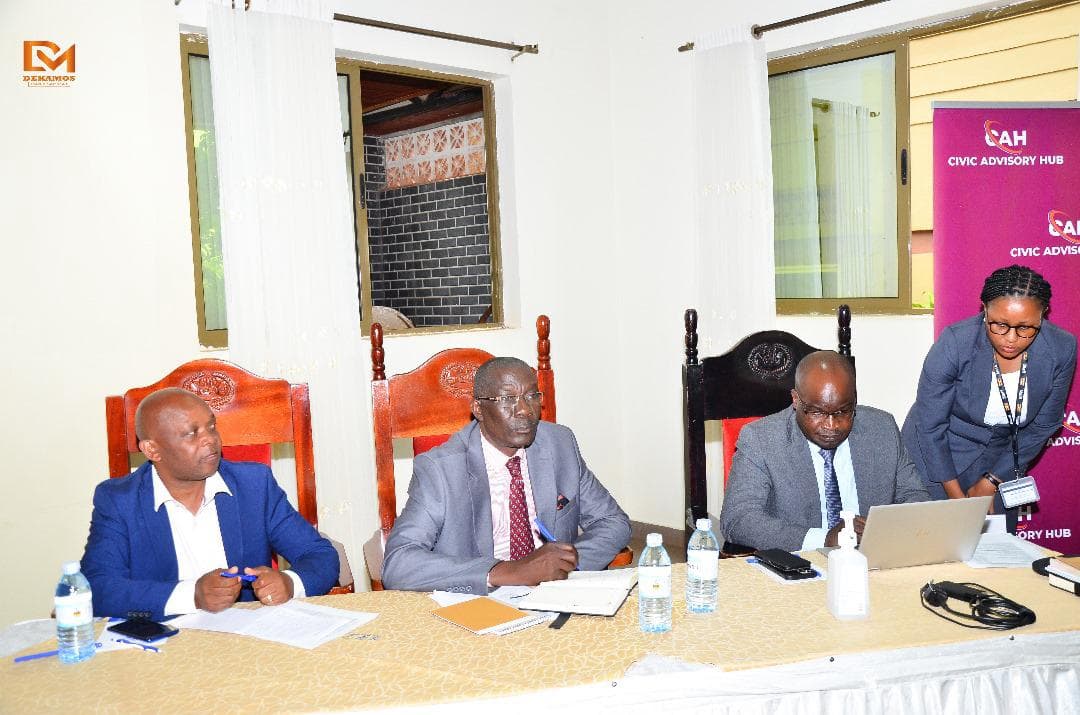The Ministry of Internal Affairs, through the NGO Bureau, has resumed nationwide consultations to conduct a Regulatory Impact Assessment (RIA) for the NGO Policy (2010) and the NGO Act, Cap 113. First launched in December 2023, this process seeks to evaluate the effectiveness of the legal frameworks governing Uganda’s nonprofit sector—laws which have remained largely unreviewed since the first NGO law was passed in 1989.
Dr. Stephen Okello, Secretary of the NGO Bureau, emphasized the importance of these consultations as a critical step toward creating a more inclusive and accountable NGO regulatory environment. The exercise, he noted, aims to strengthen partnerships between the government and civil society by reshaping regulatory instruments for more efficient governance and monitoring.
Civic Advisory Hub was honored to participate in the Central Region consultation held in Mukono from April 7–8, which brought together NGO representatives, community-based organizations (CBOs), and district local government leaders from Mukono, Buikwe, Kayunga, and Kampala.
A preliminary report presented by Ms. Martha Oundo, Assistant Commissioner for Inspection and Compliance, cited issues such as poor compliance, inconsistent data from NGOs, and "haphazard funding”. However, feedback from NGO actors during the consultations revealed deeper, systemic challenges faced on the ground:
- Over-regulation that increases operational costs and limits flexibility
- Delays in permit renewals and MOU approvals across districts
- Inconsistent application of compliance standards, with some District NGO Monitoring Committees (DNMCs) demanding facilitation from NGOs
- Over-scrutiny of NGOs, who are often treated as suspects rather than key contributors to national development
One participant noted, “NGOs submit workplans and MOUs with detailed information. It is the responsibility of the regulators to verify activities on the ground—how can they still claim not to know the value NGOs bring to the communities and the country?”
In response, NGO actors proposed the following key reforms:
- Standardized MOU procedures across all districts
- A user-friendly digital compliance system
- A national assessment to quantify and document NGOs’ contributions to GDP and development
- A risk based regulatory framework and that promotes accountability without stifling NGO operations
- Translation of key policies and communication from the Bureau into local languages
- Clearer guidance on regulatory changes, including the Anti-Money Laundering (AML) Schedule 2 and Beneficial Ownership law
Significantly, NGOs expressed strong opposition to the proposed centralized NGO Fund, arguing that financial independence is vital for maintaining objectivity—particularly for NGOs working in governance, accountability, and transparency.
They also recommended:
- Scrapping Sub-County NGO Monitoring Committees and retaining oversight at the district level
- Streamlined MOU guidelines with clear timelines for DNMCs to meet and review submissions
- Operational permits valid for up to 10 years, with options to pay for 1, 5, or 10 years based on the organization’s discretion
- Reducing fines for operating without a permit to UGX 100,000 per month to account for practical challenges in compliance
These consultations represent a critical opportunity to co-create a more enabling environment for Uganda’s nonprofit sector—one that acknowledges its role as a key development partner.
